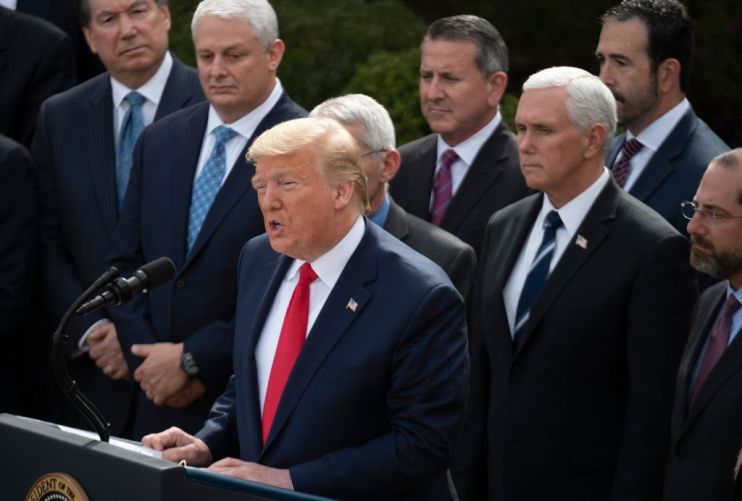Trump declares national emergency amid coronavirus outbreak

US President Donald Trump has declared a national emergency in a bid to contain the coronavirus outbreak.
The move will allow the federal government to tap up to $50bn (£40bn) in emergency relief funds.
It will loosen the regulations around the provision of healthcare, making more people eligible for government healthcare.
It is also hoped it will speed up testing, which has so far been criticised for being slow.
So far there have been 1,701 confirmed cases of coronavirus in the US and 40 deaths.
Several states have already implemented measures to slow transmission rates, including banning mass gatherings, sporting events and closing schools.
Trump addressed the nation on Friday to declare the national emergency, which he called “two very big words”.
Speaking from the White House he said the “next eight weeks are critical”.
The emergency response will give more flexibility to healthcare providers, while hospitals have been asked to activate there emergency preparedness plans.
There will be an additional 500,000 coronavirus tests available early next week, although authorities are only recommending them for those with clear need.
Around 5m tests could be produced within a month.
Another measure being put in place is to waive the interest on student loans until further notice in a bid to ease burden on students whose universities are closed.
The US House of Representatives Speaker Nancy Pelosi added that a deal had been agreed with the White House on a package to assist people affected by the outbreak.
It includes paid sick leave of up to two weeks and paid family and medical leave of up to three months.
There will also be free virus testing for those without insurance and food aid.